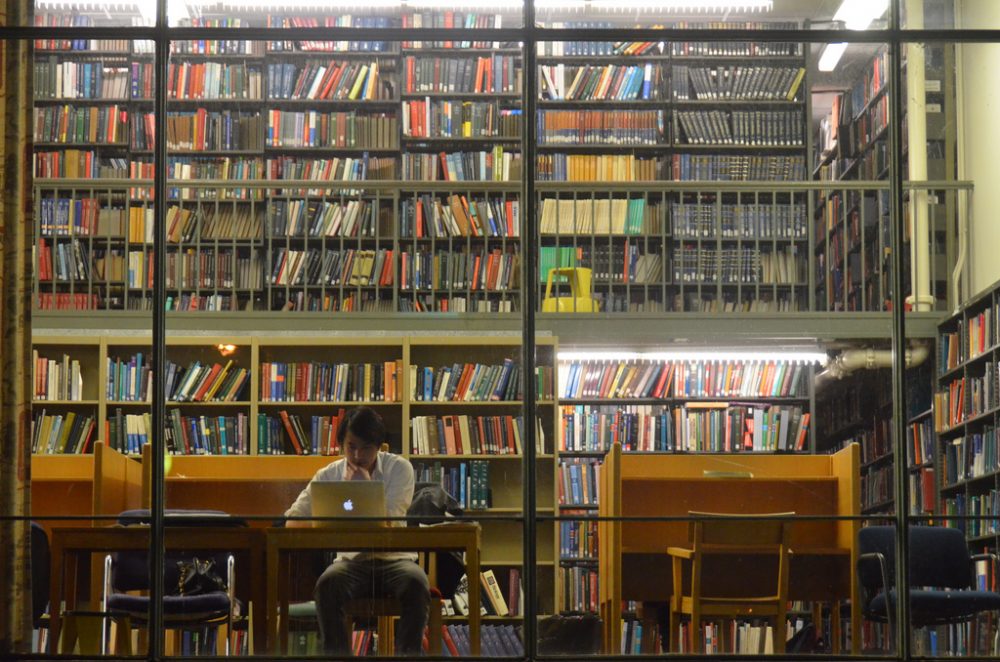Advertisement
From MIT Press: 10 Topics Every 21st Century Citizen Should Know About

“That’s it: I need to know what I need to know!” I exclaimed recently when I heard about the “Essential Knowledge” series published by MIT Press.
Know what I mean? The 21st century’s constant rapid change — particularly in technology — can engender a festering fear of missing out, the sense that everyone else is riding some trending wave while you’re standing with your back to it not even aware it’s there.
And call me naive but there's no arbiter of need-to-know modern knowledge I'd rather consult than the bastion of brilliance that is MIT.
Gita Manaktala, editorial director of the MIT Press, says the Essential Knowledge series started in 2011 and aims to provide snapshots of the current state of knowledge on important topics — concise "foundational overviews."
"These are the topics that people are talking about, not just at cocktail parties but at work and at school and in our personal and social lives, that we have some understanding of but we probably need to know more about," she says.
The editors who select the topics are "deeply aware of the social impacts of new technologies and of the role of real people in shaping those technologies," she says. "We don't treat technology in a vacuum here. We talk about how people who use technology have a chance to take some responsibility for it, and to influence its future design and direction."
I asked Manaktala to narrow the 24 books of the series so far down to 10 topics that I should feel somewhat sheepish about if they're unfamiliar. She kindly obliged, with the help of acquisitions assistant Jesús J. Hernández:
The Internet of Things
People are no longer the only ones using computers, phones, tablets, and devices to connect online. Increasingly, our cars, thermostats, refrigerators, and a host of other objects form a networked, physical world. However, this level of massive connectivity also embeds massive vulnerability.
Machine Learning
Artificial intelligence today is not about brute force programming or computers playing chess. It is about the ability of algorithms to process massive amounts of data and make inferences about the interactions between underlying factors. As we read, shop, search and navigate the world, inferential machine learning is getting smarter by finding, observing, and recording hidden models that explain our behavioral patterns that can thereby be used to shape our experiences.
The Technological Singularity
Whether in 15, 50, or 500 years, the advent of true artificial intelligence and the resulting rapid acceleration of technological advancement will present a range of practical and philosophical conundrums. When fiction becomes fact, how will humanity decide to write the next chapter in the story of our species?
Self-Tracking
More and more technologies aim to monitor the data we produce in our daily lives: what and how much we eat, how fast and how long we run, what times of day we work best. But how we (and others) utilize the data gathered through our self-tracking is a question that blurs the lines between surveillance/empowerment and control/play.
Memes in Digital Culture
Simultaneously entertaining and serious, memes reveal to us key aspects of contemporary society, digital culture, and the uses of the internet. The referential and collaborative nature of memes models an increasingly ubiquitous form of participatory Web 2.0 humor and politics.
Open Access
Creators of all kinds (authors, musicians, academics, artists) make their work freely available, prioritizing the potential for greater impact over the presumed loss of profit. Open access, however, is differential; it takes different forms for different creators and can bring different concerns about the future of copyright, intellectual property, and payments for creative works.
Crowdsourcing
How can we tackle the biggest questions facing our society today? Crowdsourcing yields the collective intellect of online communities towards solving a particular problem as set out by a corporation, government, or volunteer organization. But is crowdsourcing reliable? Is it equitable? These questions and more are pertinent as we consider the potential future applications of crowdsourcing, including journalism, governance, and scientific research.
MOOCs
Escalating educational costs and lacking local or adequate educational resources have caused many people to seek out alternative means for learning across a range of academic fields. Massive Open Online Courses (MOOCs) arose as one controversial response to this need. Do MOOCs represent yet another sign of the increasingly exploitative conditions of academic labor, an imaginative innovation that can help equalize the future of education, or something entirely separate?
Metadata
The Snowden leaks revealed a lot of things, including the unremarked but very central role of metadata in a connected world. This hidden infrastructure is so important that we hardly notice it when it is working well. Metadata is more than an innocuous description or “data about data.” It creates new relationships (and unveils previously overlooked connections) between items, people, and patterns in a network. An otherwise useful shorthand for dealing with unruly amounts of information, metadata spurs Orwellian suspicions about the privacy clauses and concessions to tracking written into terms of service agreements that we all too readily accept.
Auctions
For many, auctions may only conjure the sound of a rapid-fire series of numbers rattled through a microphone or the image of antiquities and art objects displayed before a paddle-ready audience at Sotheby’s. And yet, the economic model and principles of the auction undergird many of our contemporary markets including platforms and transactions used by eBay, Google Ads, real estate, and even the U.S. Treasury.
Readers, anything major that they're missing? Manaktala says upcoming topics include: recycling, GMOs, machine translation, haptics (the science of touch), data mining, deep learning, GPS, space flight and citizenship (including the refugee crisis.)
